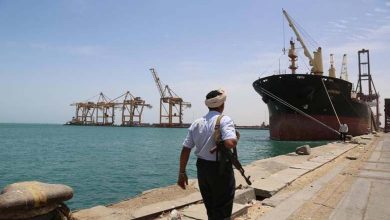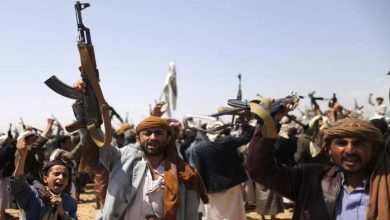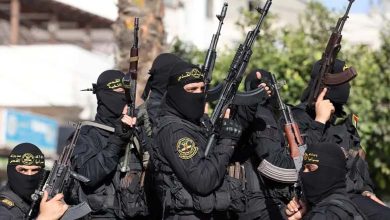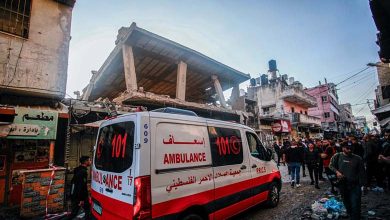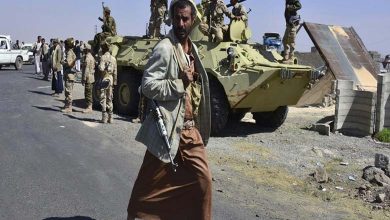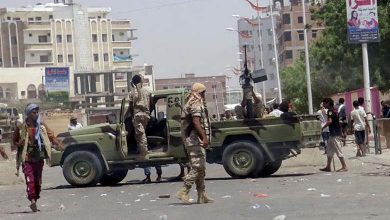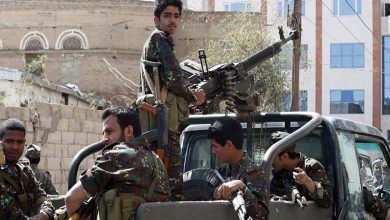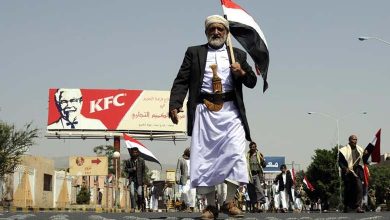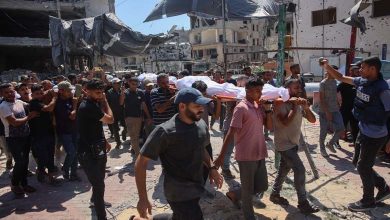Washington Assassinate Senior Leader in Iraqi Hezbollah
Iran-linked factions pledge to retaliate against the US attack targeting a car carrying the leader Abu Baqir al-Saadi in Baghdad
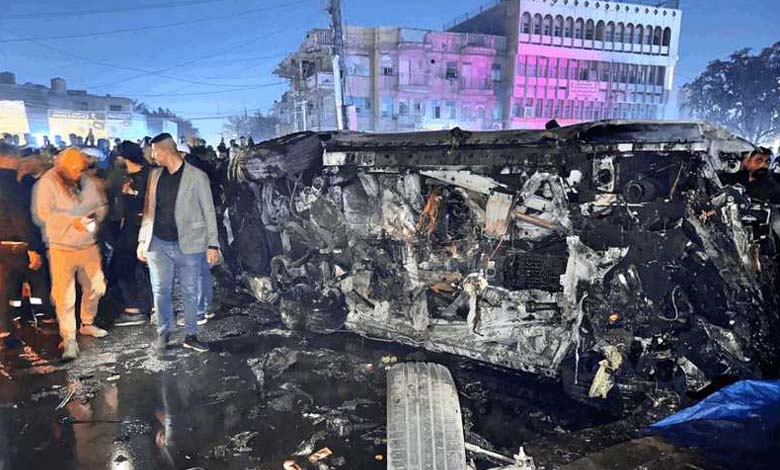
A prominent leader in the Hezbollah Brigades, the influential Iraqi armed faction linked to Iran, was killed in a drone strike carried out by an American aircraft targeting his car in Baghdad on Wednesday evening. Washington accuses him of involvement in planning attacks targeting its forces in the Middle East. This strike comes a week after US airstrikes, following Washington’s pledge to target armed factions linked to Iran after an attack on January 28 that killed three American soldiers in Jordan near the Syrian border. The Hezbollah Brigades announced in a statement the killing of Abu Baqir al-Saadi, a prominent leader in the US strike. Al-Saadi was responsible for the “Syrian military file” within the Brigades, according to a source in the faction, who preferred not to disclose his identity.
US Central Command (CENTCOM) said in a statement on social media that the airstrike was “in response to attacks on American soldiers” and led to the killing of “a leader in the Hezbollah Brigades who was directly responsible for planning and participating in attacks on US forces in the region,” adding “there are currently no indications of collateral damage or civilian casualties.” A photographer witnessed a large deployment of security forces in the neighborhood where the strike occurred, preventing access to the strike site. Later, the car, which was completely burnt, was removed from the scene. The Popular Mobilization Forces, in a statement carried by the Iraqi News Agency, mourned Abu Baqir al-Saadi.
The strike resulted in the killing of three people in the car, according to an official in the Iraqi Interior Ministry who preferred not to disclose his identity. This official confirmed the killing of “leaders” of the faction. The source said, “A drone targeted a four-wheel-drive vehicle with three missiles in the nursery area in eastern Baghdad.” Washington classifies the Hezbollah Brigades as a “terrorist” organization and has previously targeted the faction with airstrikes in Iraq in recent weeks.
The faction is one of the prominent factions of the “Islamic Resistance in Iraq” that has adopted dozens of rocket and drone attacks against US forces and the international coalition forces fighting the Islamic State in Iraq and Syria in recent weeks.
Baghdad accused the US-led international coalition against the Islamic State, led by Washington, of becoming a “destabilizing factor for Iraq” a day after an American strike in Baghdad killed a leader in a pro-Iranian faction.
Yahya Rasool, the military spokesman for Prime Minister Mohammed Shiaa al-Sudani, said in a statement, “This path pushes the Iraqi government more than ever to end the mission of this alliance, which has become a destabilizing factor for Iraq and threatens to drag Iraq into a conflict,” adding, “Our armed forces have no choice but to fulfill their constitutional duties to preserve the security of Iraqis and Iraq’s territory from all threats.”
Since mid-October, US forces and the international coalition against jihadists in Iraq and Syria have been subjected to more than 165 attacks, in a direct reflection of the war raging in the Gaza Strip between Israel and the Palestinian Hamas movement.
Hamas condemned in a statement the “barbaric aggression” on Baghdad, considering the US strike “an assault and a violation of Iraq’s sovereignty and security.”
Following the strike in Baghdad, the Al-Nujaba Movement, a pro-Iranian faction in Iraq affiliated with the Popular Mobilization Forces, warned of a “focused response” to this strike.
The movement, also affiliated with the “Islamic Resistance in Iraq,” said, “These crimes will not pass without punishment, and you will know then that our patience has run out, and wait for the appropriate response and we will choose the appropriate time and place.”
The Shiite Coordination Framework in Iraq issued a statement on Thursday warning of “counterattacks,” calling on the international coalition to end its mission in the country.
The Shiite alliance “condemns the repeated attacks by US forces on Iraqi sovereignty and their crossing of red lines by targeting official forces once and men who contributed to defeating ISIS terrorists and cleansing Iraqi territory of their Takfiri pollution again,” adding that “the targeting of martyr Abu Baqir al-Saadi on Wednesday evening in a densely populated area contradicts and intersects with the specified tasks of the coalition forces, which are limited to fighting terrorist organizations in their presence areas, but we promise it will be bloody revenge from leaders who faced terrorism forcefully.”
It warned “that continuing in this way will open the door to counterattacks, and it will not end there,” calling “for the continuation of government efforts to end the mission of the international coalition, thus ending the series of aggressive attacks, and maintaining the safety and security of citizens.”
Amid the developments in Iraq, Iranian-backed militias launched a new attack with drones on the Omar oil field base in Deir Ezzor province, eastern Syria.
Local sources said on Thursday that the attack was carried out by armed groups west of the Euphrates River, using a number of drones. There has been no announcement of any casualties from the attack, nor has the US side made any comment on the attack so far. Last Sunday, Iranian-backed militias also launched an attack on the US base at Omar field.
The Islamic Resistance in Iraq says its attacks are in solidarity with Gaza and against US support for Israel in its war on Hamas, but it also calls for the withdrawal of about 2,500 US troops deployed in Iraq as part of the international coalition. Officials in Washington said the attack in Jordan against US forces “bears the Hezbollah Brigades’ fingerprint.”
The Hezbollah Brigades announced at the end of January the “suspension” of military and security operations against the United States in the country in order not to “embarrass” the Iraqi government, after Washington pledged to respond “appropriately” to the attack in Jordan.
Despite announcing the suspension of its attacks, the Brigades advised its fighters to “temporarily adopt passive defense if any hostile American action is taken against them.”
A week ago, the United States launched strikes in Syria and Iraq against targets of the Quds Force, the unit responsible for foreign operations in the Iranian Revolutionary Guard, and armed factions loyal to Iran.
The strikes came in response to an attack on a logistical base for US forces on January 28 in Jordan near the Syrian and Iraqi borders, which killed three American soldiers.
The US strikes that targeted areas inside Iraq, near the border with Syria, resulted in the killing of 16 fighters from the Popular Mobilization Forces, an alliance of armed factions linked to Iran, whose elements have become part of the official Iraqi forces. For weeks, Iraq has found itself amidst tensions in the region, despite diplomatic efforts by the Iraqi government to reduce escalation, with its partners Iran and the United States.


